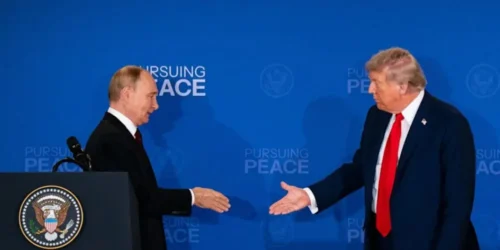Haunted by the memory of last August’s sudden market rout, big investors are approaching the typically quiet summer months with unusual caution. They fear a fragile Middle East ceasefire, volatile oil prices, and looming trade deadlines could shatter the current market calm.
Asset managers are actively buying protection, such as equity put options, to shield their portfolios from potential shocks. While global stocks have hit record highs this year, and Wall Street’s “fear gauge” remains low, a sense of unease is growing beneath the surface. Many believe the market is complacently ignoring significant geopolitical and trade risks.
The biggest immediate concern is the July 9 deadline for a U.S.-EU tariff deal. With little progress made, some strategists are preparing for a “blasé” market to wake up to the risk of a trade war suddenly. The unpredictable nature of the Trump administration remains a key variable, as does the potential for another oil price shock, which could upend currency markets and trigger a rush to the U.S. dollar.
Adding to the anxiety is the behavior of automated trading funds, which can amplify market swings. These funds often buy stocks when volatility is low and dump them when it spikes, a dynamic blamed for exacerbating last year’s sell-off.
With so many potential catalysts on the horizon, some managers are even overriding their computer models to reduce risk manually. This year, it seems there will be no summer vacation due to market uncertainty.













